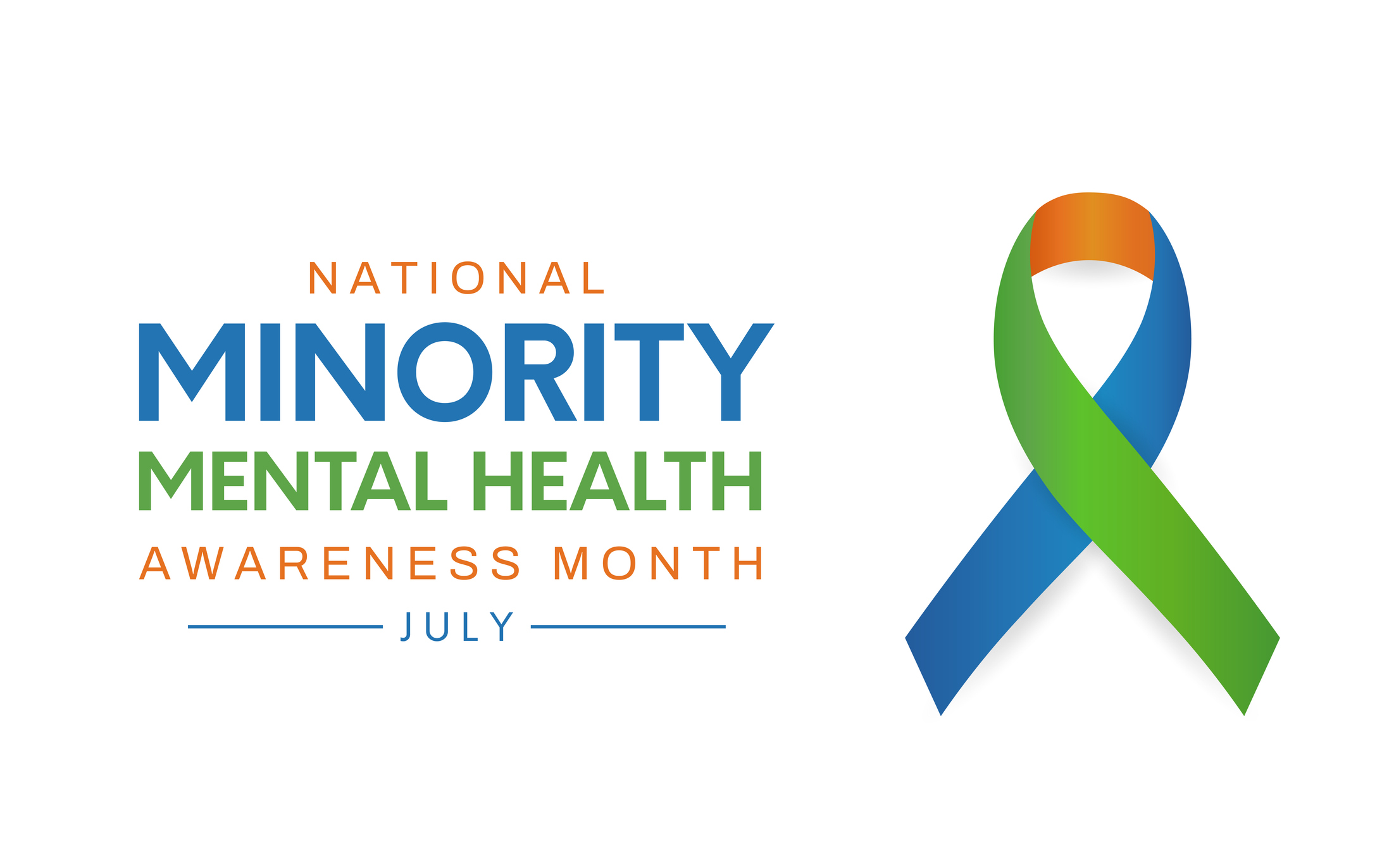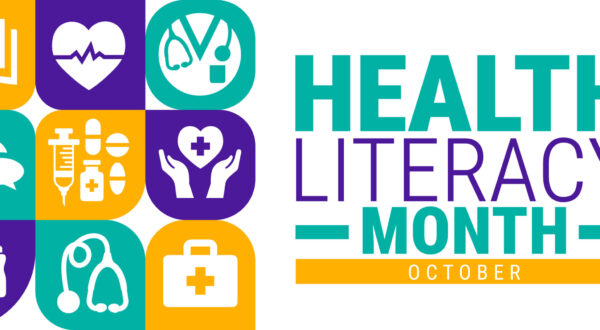National Minority Mental Health Awareness Month

It can be fascinating to learn the origin story for something that we otherwise simply take for granted. This is the case with National Minority Mental Health Awareness Month. In 2008, the U.S. House of Representatives honored Bebe Moore Campbell when they designated July as National Mental Health Awareness Month in her name.
Who was Bebe Moore Campbell? An author, journalist, and teacher, Bebe Moore Campbell became an influential mental health advocate simply for the fact that she wanted to love and support her young adult daughter, Maia Campbell, in the best way that she could during the years leading up to (and after) her diagnosis of bipolar disorder, a mental illness. It was a challenging period for the Campbell family; Maia was on the rise as a successful actress in the 1990s with hit TV shows including the Fox comedy-drama series “South Central” and the NBC/UPN sitcom “In the House.” Campbell would later look back and say that as a mother, she was in deep denial for three years, due in part to the stigma of mental illness in the Black community.
Reasons for deep denial. Her journey as a caregiver led Campbell to discover that there was a genetic propensity for mental illness in her family lineage. Being the compassionate and effective leader that she was, Campbell dedicated herself to fostering awareness about the severity of mental health stigma in Black and other underrepresented communities. Her words capture it best:
“While everyone – all colors – everyone is affected by stigma – no one wants to say ‘I’m not in control of my mind.’ No one wants to say, ‘The person I love is not in control of [their] mind.’
But people of color really don’t want to say it because we already feel stigmatized by virtue of skin color or eye shape or accent and we don’t want any more reasons for anyone to say, ‘You’re not good enough.”
Support begins locally. For the Campbell family, there was nowhere to go to get the support they needed. Hence, they created their own support group, gathering with others suffering from mental illness and those caring for a loved one battling mental illness. At first, they focused on listening to and praying for each other. The support group went on to become its own chapter of the National Alliance on Mental Illness, known as NAMI Inglewood, and which later became NAMI Urban LA. Campbell said that as they grew stronger, they made it a point to become mental illness “stigma busters.”
Need for culturally responsive and culturally sensitive care. When it comes to the diagnosis of severe mental illness conditions such as schizophrenia, bipolar disorder, mania, and depression, culturally responsive care makes a significant difference in ensuring an accurate diagnosis. Prior to Campbell’s death in 2006, she advocated for change in the health care sector; she knew that these types of mental illnesses occurred at a consistent rate across all racial and ethnic groups. However, at the time Black males were four times more likely to be misdiagnosed with schizophrenia while Latino males were three times more likely to be misdiagnosed. Misdiagnosis leads to prescriptions and treatment outcomes that are less effective. Historically, there have been numerous additional factors that have exacerbated the difficulties for Blacks and other underrepresented communities to get the support they need such as underinsurance and a lack of insurance all together, resulting in inadequate (or lack of) therapy and medication.
An important legacy. Bebe Moore Campbell devoted herself to raising awareness of the mental health needs in Black and other underrepresented communities. Despite recent attempts to change the name, the National Alliance on Mental Illness (NAMI) “continues to recognize the importance of honoring Campbell’s incredible legacy and her groundbreaking work in helping shift the mental health culture in underserved communities.”
Resources
Time Magazine Interview (5-minute read): Between the Lines with Bebe Moore Campbell
Video (42 minutes): Bebe Moore Campbell (Book Tour Talk – 72 Hour Hold)
72 Hour Hold (a novel authored by Bebe Moore Campbell, free Audible Audiobook)
If you are (or someone you know is) having a mental health crisis or thoughts of hurting yourself or others, call 988. They can also help with:
- Emotional distress
- Substance use concerns
- Suicidal crises
Their trained specialists can give free and confidential support 24 hours a day, seven days a week. To get help, you can:
- Call or text 988. Texting is available in both English and Spanish.
- Live chat at org/chat. Live chat is available in both English and Spanish.
Learn more at 988colorado.com.


